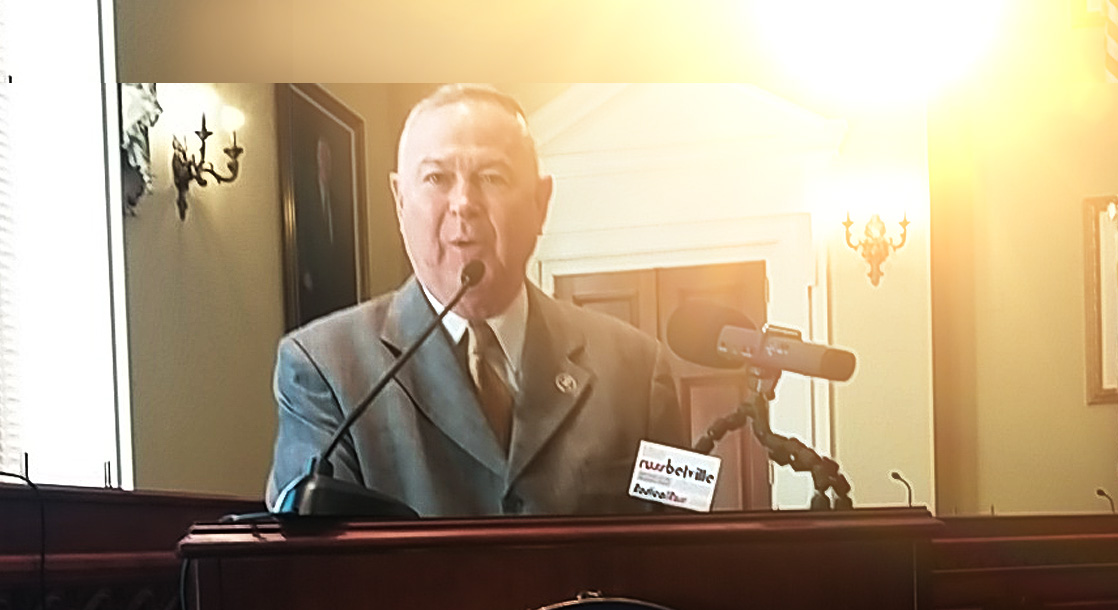Lead illustration by Molly Rose Dyson
Ryan Lewis never thought he’d wind up in the cannabis industry.
After studying economics and sociology at Brown University, he went the Wall Street route, working in private equity and managing hedge funds. But when his close friends decamped from the finance world to start a cannabis investment firm in 2014, he saw a chance to pivot careers.
“That was the greenlight for me. It really made me know the timing was good and that cannabis was a viable opportunity,” he told MERRY JANE by phone.
Lewis moved into cannabis, becoming a partner and Head of Global Sales for Folium Biosciences, a hemp grower, manufacturing company, and the exclusive supplier to Entourage Nutritional — a wholesale distributor of CBD products — in 2014. He got into CBD oils and hemp products, a move allowing him to sidestep the state-by-state regulatory restrictions on marijuana and to grow a national brand, thanks to those products’ legal status.
“Our organization is evolving into a company that’s going to have things like a full HR department and all of the traditional structures you’d find in a typical corporate environment,” Lewis said.
And along with a growing company in a budding industry comes recruitment. Lewis wants to attract top talent, so Folium launched a scholarship program for college students looking to get into the cannabis industry after graduation. Two successful applicants will be offered five-thousand dollars towards their college education and a paid two-month internship at Folium Biosciences HQ in Colorado.
The application process includes an essay outlining why the applicant wants to work in the cannabis industry — a move that’ll help Folium better understand how to attract smart, driven college students. “It’s helpful data for our company. In order to develop talent, we need to understand what students are looking for,” said Lewis.
Folium isn’t alone in its efforts to attract young people to the green rush. As the country gets closer and closer to nationwide legalization, business owners are thinking ahead about the next generation of consumers and producers and how they can get involved with legal cannabis now. Cannabis-specific recruitment companies, job fairs, and networking events have sprung up around the country. Seattle Central College even offers a Medical Marijuana Consultation Certificate. Though working directly with the plant — like recreational consumption — is an option only for those over 21, this hasn’t stopped a variety of businesses and organizations from beginning to cherry-pick young enthusiasts eager to take part in one of the nation’s fastest growing markets.
“The reality is there’s a huge amount of students interested in going into the industry and tons of opportunity here,” Lewis said, noting the scholarship aims to further professionalize the world of legal cannabis. “It raises awareness about the industry and also shows students we are actively looking for talent.”
It’s not just weed-slinging budtender gigs that the cannabis industry has to offer ripe enthusiasts, either. As the industry grows, ancillary and adjacent industries like cannabis-only real estate brokers, investment firms, and technology companies are also springing up, and novices are getting more and more opportunities to enter the game.

KT Klens started their internship with cannabis-focused recruiting agency THC Staffing just after completing their undergraduate education at Eckerd College in St. Petersburg, Florida.
“The position was advertised as a chance to get into the industry if you weren’t sure how or if you wanted to explore it before making any permanent changes,” said Klens to MERRY JANE over the phone. “They received about 30 applications and mine luckily just blew them out of the water.”
After heading up her school’s Students for Sensible Drug Policy chapter and majoring in biology, Klens' ultimate goal is to find a job growing cannabis for research and medical purposes. Klens viewed the THC Staffing opportunity as a way to get a foot in the door. “I figured at minimum from doing this internship [I would gain] a connection to Shaleen Title [THC’s co-founder], and having her as a reference on my resume would be helpful for me in a future job search,” Klens said.
The plan worked out faster than expected. Klens was overjoyed when the internship turned into a staff position as a part-time recruiter for the agency. “I’m 25. I graduated from college a year ago. While most of my peers are employed, I’m one of the only ones I know who’s [actually] employed in my field,” they said.
But scholarship and internship opportunities in the cannabis field are new and potentially controversial. Just two decades ago, students were being warned and punished about the dangers of marijuana. In 1998, an amendment to the Higher Education Act disqualified students with drug convictions and minor marijuana charges from federal student loan eligibility. In the late ‘90s, students at the Rochester Institute of Technology were blocked from forming the first chapter of Students for Sensible Drug Policy — now one of the largest international student-based drug policy reform groups — and its founder Shea Gunther was eventually expelled a year later in 1998. Not to mention that the U.S Justice Department budgeted $1.7 million annually to fund D.A.R.E’s anti-drug, abstinence-only education to middle and high schoolers across the nation.
“I’m not aware of any campuses who are demonstrably friendly to reform,” said Betty Aldworth, Executive Director of Students for Sensible Drug Policy’s national chapter. Over the phone, she gave the example that many campuses still explicitly forbid students from using medical marijuana in their dorms. “I am aware of some [cannabis] corporations that have been looking into figuring out how to do brand building or recruitment on campus, but I’m not aware of any who have asked to be [at a campus job fair]. With the general unfriendliness of campuses, many of these companies might assume they would be unwelcome, and they have good reason to assume that.”
Aldworth did mention she had heard of some companies holding campus-adjacent job fairs and events, but never at a school’s official job fair.
“Now we have relationships with over 15 universities, but when I first started reaching out to universities they literally laughed in my face,” said Karson Humison, CEO of cannabis recruiting agency Vangst Talent, who also recalled setting-up recruiting tables in the free-speech zones on campuses in 2015.
“A lot of professors I’ve spoken with have told me off the record that they view this [industry] as an exciting opportunity for their students,” said Humison, adding that private universities have been more receptive to the cannabis industry while public institutions’ reliance on federal funding makes them more cautious when it comes to inviting cannabis industry professionals on campus.
But most cannabis corporations and young people eager to get into the field have to connect off-campus, which is why recruitment companies like Vangst Talent and THC Staffing hold campus-adjacent events.
“We hold our own inclusive career fairs that are open to students and non-students alike,” said Shaleen Title, founder of THC Staffing told MERRY JANE over email. “We also have a very close relationship with Students for Sensible Drug Policy (the two owners of our firm are both SSDP alumni). Staying involved in the organization and mentoring students has been a direct way for us to find students who are talented and care about the issue.”
While pro-marijuana and drug reform advocacy groups have been a hallmark of campus organization since the ‘90s, Brown University sophomore Nadir Pearson felt there was a lack of student groups making connections with the business side of the new industry.
“I realized there needed to be something that specifically said weed, marijuana, cannabis,” Pearson told MERRY JANE over the phone. “Something besides SSDP.”
Pearson founded SMART — Student Marijuana Alliance for Research and Transparency — a group focused on creating an equitable cannabis industry through academic research and grassroots education.
“I wanted to meet and talk with like-minded individuals,” Pearson said. He also wants to bring cannabis industry professionals on campus. “Brown is a very liberal institution. We have a bunch of interested students; [next] we’ll work with faculty to bring in people they can vet.”
Young people who aren’t enrolled in college can look into seed programs offering financial aid and business mentorship to cannabis start-ups, as well as organizations that offer financial aid to attend industry conferences and networking events. Groups like WomenGrow and the Minority Cannabis Business Association (MCBA), both of which focus on increasing diversity in the industry, offer reduced or free entry to their own and other industry-related events for qualified applicants. MCBA, for example, offers free entry to the National Cannabis Business Associations’ annual expo for mid-level industry professionals of color. Both WomenGrow and MCBA said they would like to develop more formal scholarship and mentorship programs to nurture young talent in the future.
A pre-seed accelerator program in Oakland called The Hood Incubator is aiming to give young entrepreneurs of color a leg-up in the industry by offering over a hundred hours of workshops and mentorship from professionals in Oakland’s mainstream cannabis industry over a four-month period. The program focuses on people transitioning from Oakland’s underground cannabis market to the legal one. Its first cohort started in January, where a class of 15 consults with industry professionals while incubating their own ideas for cannabis companies.
Jesce Horton, a California cannabis cultivator and chairman of the Minority Cannabis Business Association, an organization helping people of color get into the industry, believes growing acceptance and legalization will destigmatize the industry for young people, and especially young people of color.
“I hope we have more strong and visible people of color that come into the industry, are successful, and help establish active ladders to both reach back into communities of color to help and to encourage young people to engage with the industry,” Horton said over the phone. He is hopeful when he hears that young people of color, like Pearson, are entering the industry without fear, and that they want to work towards a future where young people, and especially young people of color, have easier inroads to the industry. He highlights lack of capital, education, and established professional networks as barriers to young people of color entering it.
“We want to develop a network of people who are successful, people like you who are just starting out,” said Horton, adding that MCBA has been talking with SSDP about a potential scholarship fund for students and with the Resource Innovation Institute about funding students looking into energy efficiency and sustainability in cannabis cultivation.

Photo of a young weed enthusiast via Pixabay/CC
But for young people who aren’t eligible for scholarships or don’t have the means to utilize a recruiting agency, there are more straightforward ways to get into the industry.
“Don’t rely on a recruiting agency to get you a job,” says David Murét, co-founder and COO of Viridian Staffing, the country’s oldest cannabis-specific recruitment firm. “Someone who’s motivated to know what a company is about, who seeks out those people at industry events, who’s read up on articles the CEOs have written, might be very surprised by how quickly they can network their way into a relationship with a company.”
As the green rush continues, and recreational legalization officially goes into effect in a number of states in 2018, a multitude of new cannabis companies will continue to bud, requiring them to hire new employees. Many of these hires will be young people, proving that marijuana isn’t a gateway to unemployed couchlock, as many of us were told in school.
"There’s a huge amount of students going into this industry,” reiterated Ryan Lewis of Folium. “We are growing fast and we definitely are looking to secure talented and motivated people,” adding an smiley emoji to the end of his email.
Follow Julia on Twitter
See more of Molly Rose Dyson's illustration work here











